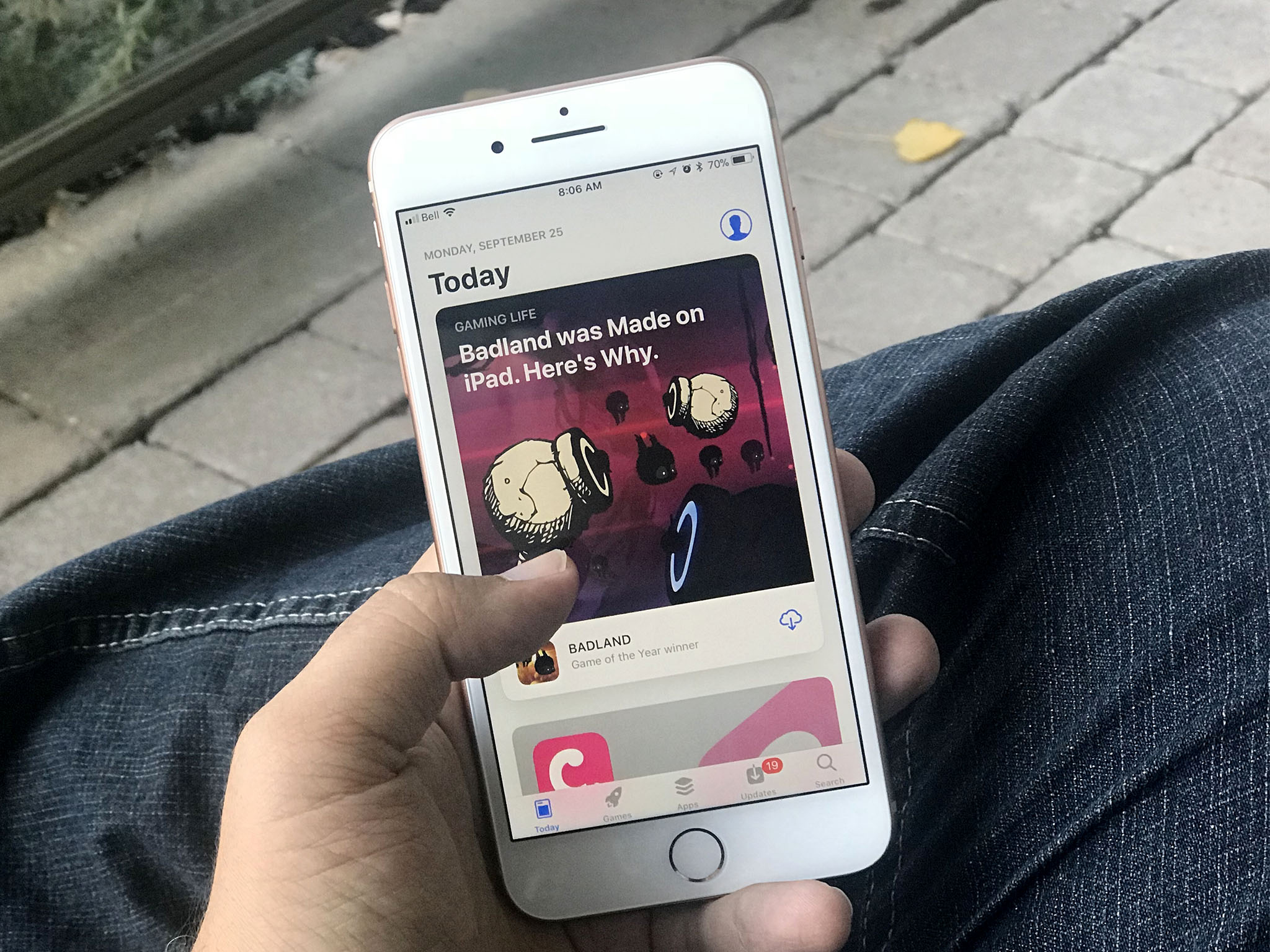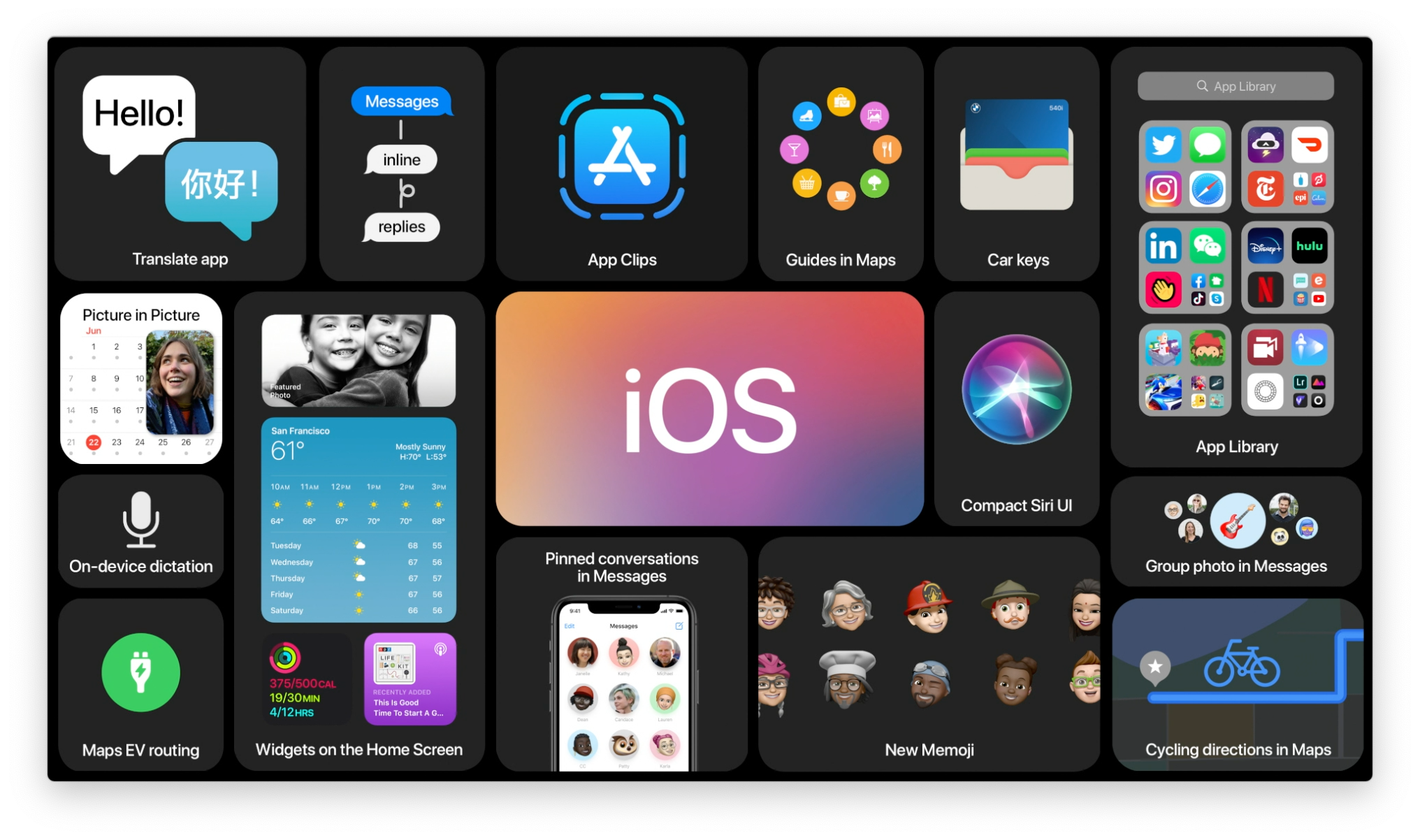Apple ending the App Store affiliate program is bad for the community

iMore offers spot-on advice and guidance from our team of experts, with decades of Apple device experience to lean on. Learn more with iMore!
You are now subscribed
Your newsletter sign-up was successful
On Tuesday, Apple announced its best June quarter ever, with services revenue of $9.55 billion — up 31% year over year. And a large part of that is App Store revenue.
On Wednesday, Apple announced an end to its App Store affiliate program, which paid a small commission for links that resulted in the purchase of an app.
This is what Apple sent out in an email late last night to program members:
Thank you for participating in the affiliate program for apps. With the launch of the new App Store on both iOS and macOS and their increased methods of app discovery, we will be removing apps from the affiliate program. Starting on October 1st, 2018, commissions for iOS and Mac apps and in-app content will be removed from the program. All other content types (music, movies, books, and TV) remain in the affiliate program.
Needless to say, developers who used the program as a way of recovering a small amount of direct sales revenue and media who used it as a way to pay the bills, including salaries, were apoplectic.
Bad things said badly
The optics, announcing the end of the program right after announcing record-setting profits, were terrible. And the tone of the announcement itself was read by many as cold… even callous.
With the launch of the new App Store on both iOS and macOS and their increased methods of app discovery, we will be removing apps from the affiliate program.
It's my understanding Apple didn't intend for it to sound that way, but from an outside perspective it felt a lot like "hey, thank you for putting me through graduate school but I've found someone younger, hotter, and far richer than you now. So… byeeeeeee!"
Which is a gut-punch, and illicits the same reaction Facebook and Twitter have gotten in the past when their policies of diminishing and removing revenue stream after revenue stream have forced people into, essentially, subsistence developing.
iMore offers spot-on advice and guidance from our team of experts, with decades of Apple device experience to lean on. Learn more with iMore!
When a mega corporation that has billions of dollars looks at the dozens of dollars you have and, instead of figuring out ways to help you both grow and succeed, instead decides it simply has to have your dozens of dollars as well. Because more. More!
It's the classic blunder — cutting someone else's line instead of growing your own. And it also feels incredibly short sighted. Especially when it comes to the larger Apple community, and the ability to sustain many and diverse voices.
The reaction
Greg Pierce, developer of Drafts:
The affiliate program was not huge for me, but it was a nice small check every month. I imagine this will particularly hurt small blog/news sites that do a lot of app coverage, however.The affiliate program was not huge for me, but it was a nice small check every month. I imagine this will particularly hurt small blog/news sites that do a lot of app coverage, however.— Greg Pierce (@agiletortoise) August 1, 2018August 1, 2018
Federico Viticci of MacStories:
Apple killing the affiliate program for apps feels downright hostile and petty.
I am personally not that affected because we saw this coming years ago and we adapted – but it’s a huge blow to small publications, indie devs, and others who rely on this to earn commissions. Sad. pic.twitter.com/CDeJMxoyVbApple killing the affiliate program for apps feels downright hostile and petty.
I am personally not that affected because we saw this coming years ago and we adapted – but it’s a huge blow to small publications, indie devs, and others who rely on this to earn commissions. Sad. pic.twitter.com/CDeJMxoyVb— Federico Viticci (@viticci) August 1, 2018August 1, 2018
Eli Hoddap, Touch Arcade:
It's hard to read this in any other way than "We went from seeing a microscopic amount of value in third party editorial to, we now see no value." I genuinely have no idea what TouchArcade is going to do.
Dave Mark, developer and writer at Loop Insight:
This is a perfect example of Apple communicating poorly on an issue that impacts many people.
Why take food out of the mouths of your users? Is it a money issue? Is this simply about maximizing revenue?
Is this the same logic that keeps free iCloud usage pinned at 5GB? 😐 https://t.co/d2UMbpPpKGThis is a perfect example of Apple communicating poorly on an issue that impacts many people.
Why take food out of the mouths of your users? Is it a money issue? Is this simply about maximizing revenue?
Is this the same logic that keeps free iCloud usage pinned at 5GB? 😐 https://t.co/d2UMbpPpKG— Dave Mark (@davemark) August 2, 2018August 2, 2018
The reality
My understanding is that Apple tried to maintain the affiliate program for as long as it was viable for the company, and even recently kept looking for ways to make it work. I have no idea what that really means, but I can make a few educated guessed from the outside.
Many years ago, when the App Store was simpler and the bottom hadn't yet fallen from under premium App Store pricing, iMore could pay a full-time app editor off of affiliate revenue alone.
Then came in-app purchases and value starting moving from one big up front purchase to bursts of micro-payments over time.
Then came subscriptions, where up-front costs were zero regardless of how much was earned over time.
Giant internet companies and VC-backed startups also filled the store with, in some cases, amazing apps that were completely free to download, and monetized themselves in ways completely outside the store — and thus the affiliate model.
Last year, Apple announced it was dropping App Store affiliate rates from 7%t to 2.5%, then walked it back to 7-percent, but kept the drop on AIP commissions.
Long before that, though, iMore saw revenue from the App Store affiliate program just plummet.
With so many apps being free up front, people simply didn't feel the need to research as much or even take the time to read long-form reviews any more before hitting the button and just trying it for themselves.
Because App Store propagation still takes a while, search is still broken, and discovery is still a huge challenge, getting the first link someone saw to be your link still held value, but not much and not for long.
My guess is that Apple saw so much less money coming through the affiliate program and, combined with spending so much more money spinning up its own editorial and design staff to massive scale, including hiring many who used to work in the indies, they figured it didn't make financial sense to maintain it any more. So they're not.
Michael Steebler sees a silver lining:
There are a lot of negatives, but the one positive I can see for users in ending App Store affiliates is that it will probably lead to more honest app recommendations, since there is no profit motive to promote junk apps. Only the apps people truly like will be sharedThere are a lot of negatives, but the one positive I can see for users in ending App Store affiliates is that it will probably lead to more honest app recommendations, since there is no profit motive to promote junk apps. Only the apps people truly like will be shared— Michael Steeber (@MichaelSteeber) August 2, 2018August 2, 2018
I'd argue that incentives for converting affiliate revenue were often canceled out by the need to maintain audience trust. If you tried to foist crap apps on people, they wouldn't come back to you. But, for people who weren't aware of the tension, it did cause FUD — fear, uncertainty, and doubt — over the years.
Steve Troughton Smith sees darker clouds looming:
With Apple’s affiliate changes, there is now no incentive for any Apple site or YouTube channel (if they still exist) to review or cover your app at all. No reviews, no review sites, no top-X lists — it sounds catastrophic.With Apple’s affiliate changes, there is now no incentive for any Apple site or YouTube channel (if they still exist) to review or cover your app at all. No reviews, no review sites, no top-X lists — it sounds catastrophic.— Steve Troughton-Smith (@stroughtonsmith) August 2, 2018August 2, 2018
I'd argue the incentives simply — painfully, sometimes — become what they are everywhere else. iMore's sibling site, Android Central, has always covered apps even though Google has never seen fit to offer an affiliate program or a nickel or dime in commissions.
It'll absolutely hurt, maybe even crush, Apple-specific sites that covered apps and came to rely in small or in large part on affiliate revenue. Especially because mobile app and game developers, including and especially the biggest ones, haven't seen value in supporting their media the way big movie, TV, and music companies have and continue ti make buys on entertainment sites.
The hope for reversal
Apple, with its billions and billions, stacked Smaug-pile high, and major developers with their millions, could support the industry anyway. Some might call it charity but I'd call it smart, forward-looking investment in the community, in diversity, and in the understanding that real value extends far beyond the first party properties they own and maintain.
The handling of the announcement was so ill-considered in timing and tone it became indistinguishable from malice. The realities are likely far more real: Building your business on someone else's platform is never dependable, and there's precious little room left for anyone who tried to make money between seller, broker, and buyer.
I still think Apple made the wrong call and I hope the powers that be, from Phil Schiller on down, reconsider and choose to keep the App Store affiliate program. If not as a money generator than as an investment in developers and the community, and as a way to support the rich diversity of apps in the store and voices in the blogs and on YouTube.
Apple doesn't believe in loss leaders but not all losses can be measured in money. I think Apple knows that. I think they're open to it. I just hope they choose to do something about it.
And I'd also like to see Google start offering an affiliate program for the same reason. 10 years than nothing is hard. 10 years of nothing is brutal.
But let me know what you think — is Apple crippling the community, are people just looking for handouts, should there be app affiliate programs, and what would you do if you were in charge?

Rene Ritchie is one of the most respected Apple analysts in the business, reaching a combined audience of over 40 million readers a month. His YouTube channel, Vector, has over 90 thousand subscribers and 14 million views and his podcasts, including Debug, have been downloaded over 20 million times. He also regularly co-hosts MacBreak Weekly for the TWiT network and co-hosted CES Live! and Talk Mobile. Based in Montreal, Rene is a former director of product marketing, web developer, and graphic designer. He's authored several books and appeared on numerous television and radio segments to discuss Apple and the technology industry. When not working, he likes to cook, grapple, and spend time with his friends and family.

